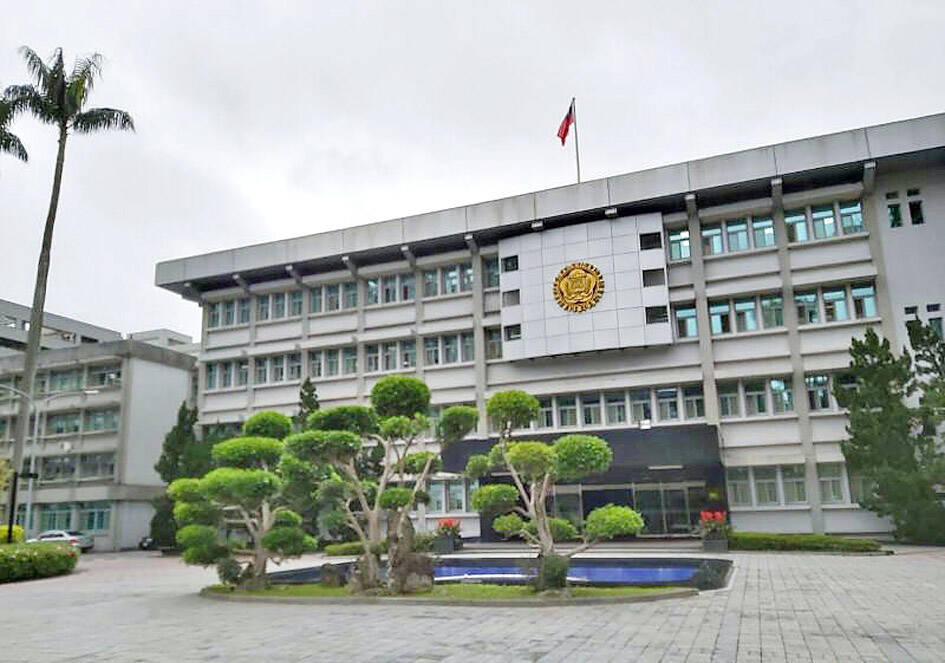Cybersecurity investigators have identified a Chinese hacker using the handle “OKE” as the prime suspect in the biggest data leak in Taiwan’s history.
OKE offered a cache allegedly containing the personal information of 23.56 million Taiwanese for US$5,000 on the Breach Forums hacker marketplace in October last year, sparking concern about national security, lack of oversight and data management negligence by government agencies.
Investigators have identified OKE as a Chinese hacker in his 20s, the Ministry of Justice Investigation Bureau’s Cyber Security Investigation Office said in a news release on Friday.

Photo: Taipei Times files
The case is being handled by the Taipei District Prosecutors’ Office. The suspect could be charged with contravening the Personal Data Protection Act (個人資料保護法) and offenses relating to computer security in the Criminal Code. Prosecutors have issued an immigration control bulletin against him.
Investigators said that the hacker used virtual currency to receive and transfer payments through a digital wallet registered in China, which contains his national identification number and other personal information.
Investigators said they were able to ascertain the hacker’s gender, year of birth, province of residence and other personal data.
OKE provided a subset of 200,000 records so that buyers on Breach Forums could check the authenticity of the data.
The subset contained the data of a number of central and local government officials, investigators said.
An analysis found that the data were based on household registration records from before April 2018, although some deviations from the original entries were found, meaning it is possible the information was stolen from other government agencies, investigators said.
Prosecutors would continue to monitor the money flowing through OKE’s digital wallet and bank accounts, officials said.
“I don’t understand why the Taiwan government is so stupid. The KYC certification system is an easy thing for everyone here,” OKE wrote on Breach Forums on Monday.
He said his digital wallet is not as easy to track as the government claims, and he has a system in place to avoid being monitored.
Officials called on all government agencies and businesses to boost private data protection, enhance cybersecurity awareness among employees and keep backup data.
They reminded the public that it is illegal to sell, purchase or access private citizens’ information without authorization, while stolen data sets being sold on hackers’ forums could also contain malware and viruses.

Taiwan is stepping up plans to create self-sufficient supply chains for combat drones and increase foreign orders from the US to counter China’s numerical superiority, a defense official said on Saturday. Commenting on condition of anonymity, the official said the nation’s armed forces are in agreement with US Admiral Samuel Paparo’s assessment that Taiwan’s military must be prepared to turn the nation’s waters into a “hellscape” for the Chinese People’s Liberation Army (PLA). Paparo, the commander of the US Indo-Pacific Command, reiterated the concept during a Congressional hearing in Washington on Wednesday. He first coined the term in a security conference last

Prosecutors today declined to say who was questioned regarding alleged forgery on petitions to recall Democratic Progressive Party (DPP) legislators, after Chinese-language media earlier reported that members of the Chinese Nationalist Party (KMT) Youth League were brought in for questioning. The Ministry of Justice Investigation Bureau confirmed that two people had been questioned, but did not disclose any further information about the ongoing investigation. KMT Youth League members Lee Hsiao-liang (李孝亮) and Liu Szu-yin (劉思吟) — who are leading the effort to recall DPP caucus chief executive Rosalia Wu (吳思瑤) and Legislator Wu Pei-yi (吳沛憶) — both posted on Facebook saying: “I

The Ministry of Economic Affairs has fined Taobao NT$1.2 million (US$36,912) for advertisements that exceed its approved business scope, requiring the Chinese e-commerce platform to make corrections in the first half of this year or its license may be revoked. Lawmakers have called for stricter enforcement of Chinese e-commerce platforms and measures to prevent China from laundering its goods through Taiwan in response to US President Donald Trump’s heavy tariffs on China. The Legislative Yuan’s Finance Committee met today to discuss policies to prevent China from dumping goods in Taiwan, inviting government agencies to report. Democratic Progressive Party Legislator Kuo Kuo-wen (郭國文) said

Sung Chien-liang (宋建樑), who led efforts to recall Democratic Progressive Party (DPP) Legislator Lee Kun-cheng (李坤城), was released on bail of NT$80,000 today amid outcry over his decision to wear a Nazi armband to questioning the night before. Sung arrived at the New Taipei District Prosecutors’ Office for questioning in a recall petition forgery case last night wearing a red armband bearing a swastika, carrying a copy of Adolf Hitler’s Mein Kampf and giving a Nazi salute. Sung left the building at 1:15am without the armband and covering the book with his coat. Lee said today that this is a serious